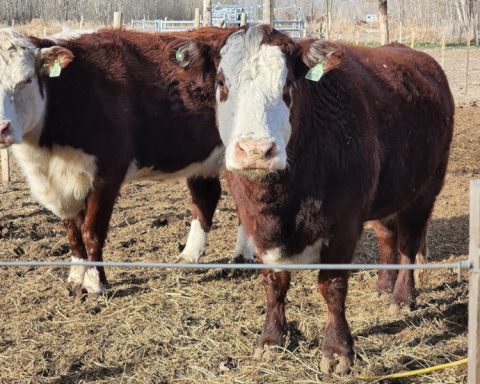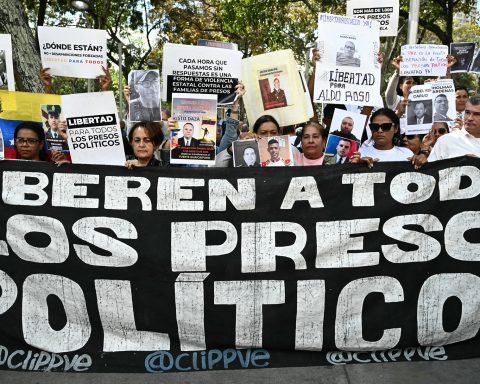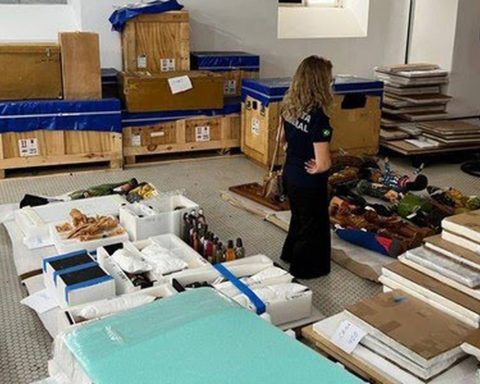In an initiative undertaken by Senator Sebastián Da Silva, this Friday a bill entered Parliament that has as its objective to prohibit the so-called lab or artificial meats are designated as meat or meat productpreventing its importation, production and commercialization.
“The names associated with products of animal origin and their derivatives will be exclusive of these products. In this sense, You may not use any label, commercial document, description or pictorial representations, or advertising material or form of advertising and presentation that indicates, implies or suggests that a product that is not of animal origin in its composition, is meat or a meat product.“, establishes the project that proposes to replace article 292 of Law No. 19,924, of December 18, 2020, by the one indicated below.
The project is entitled: “Denomination and labeling of products of plant origin with names associated with other industries – commercialization of food products produced artificially.”
Your search, specifically, prohibit the import, manufacture and sale in the country of food products that contain artificially produced animal culture cells in laboratories.
Statement of reasons
The application of regulations for the commercialization of products of animal origin can contribute to improving the economic conditions of production and commercialization of these foods, as well as their quality. The application of such standards is therefore in the benefit of producers, traders and consumers.
For certain sectors and products, the definitions, designations and sales denominations are important elements for determining the conditions of competition. Thus, it is appropriate to establish definitions, designations, and sales denominations for those sectors and/or foods, which must be used only for the preparation, possession, and marketing of foods that meet the corresponding requirements.
It is about providing transparency to consumers, so that when they make a purchase, they are certain that what is called “meat” is meat and not something else.
Many terms of meat substitute products mislead the consumer, who thinks they are buying a food that is not such.
In turn, the industry of alternative products to meat benefits from the prestige and name that the meat industry has earned over the years with its flagship products, since otherwise they would not use names such as “vegetarian burger”, ” vegetarian sausage”; the fame of these meat products speaks for itself.
In this sense, article 292 of Law No. 19,924 of December 18, 2020 was approved in a timely manner, which creates a first protective barrier against this situation, providing that foods of mostly vegetable origin that are packaged in the absence of of the client, ready to offer them to consumers in the national territory, for which the regulations require nutritional labeling, they must have a label on their front face indicating their vegetable origin whenever they use denominations associated with products of animal origin and their derivatives. Likewise, it indicated that the processors, importers and/or fractionators, will have the responsibility of compliance, veracity and legibility of the front labeling of packaged foods. This project intends to go one step further in the protection of this aspect.
As for the falsely called laboratory “meat”, in addition to attacking our country’s flagship productive system, which promotes and defends natural, organic and pastoral meat, leads us to reflect on the premises that sustain the industries that lead to advance this production, such as low environmental impact, safety and security.
Until commercial production methods and final products are established, these positive claims about impacts on the environment, animal welfare or human health will remain unsubstantiated.
There are studies that ensure that “in vitro meat” has an environmental impact equal to or even greater than livestock production, even maintaining that synthetic meat is more polluting than chicken and pork production.
On the other hand, there is a study from the University of Oxford, which indicates that this synthetic product emits more greenhouse gases. This is because methane emissions from the livestock industry do not accumulate in the atmosphere, causing less global warming, while the emissions generated by synthetic meat are entirely CO2 from power generation. If we wanted to meet the additional demand for meat by 2030 exclusively with cultured meat, we would have to build almost 150,000 bioreactors, which would have more than twice the impact on the production of this artificial product (352 million tons of CO2e) than if the consumption was covered with natural livestock (150 million tons of CO2e).
The intake of a product based on accelerated cell multiplication generates many doubts within the meat industry regarding its safety and innocuousness, especially in the medium and long term. How will this cultured tissue that starts from living pluripotent cells with tumor capacity and maintained with growth factors and agents with untested capacities for consumption interact with our cells?
These cells have unlimited regenerative potential, being able to accumulate genetic mutations over time, these biologically active molecules could interfere with metabolism or have been linked to the development of certain types of cancer. Therefore, these products with potentially carcinogenic effects could be particularly serious for human health.
Meat is an irreplaceable food that provides numerous nutrients, mentioning in turn that the nutritional composition of substitutes for meat products is not the same as that of foods of animal origin, especially in protein, amino acids, iron , phosphorus, vitamins B6 and B12, as well as their absorption and bioavailability in the body and with respect to “laboratory meat”, it is not yet known what characteristics it will have in its composition.
In this sense, measures have already been adopted in the past to protect the health and well-being of the population, prohibiting products or substances that could be, at least, potentially harmful to human health, as, for example, at the time the import, manufacture, sale and use of veterinary medicines used to promote growth or fattening in bovine, ovine, swine, equine and poultry species. At the same time, to continue maintaining the status of quality in the production of our country, which has traditionally been characterized by the use of natural animal production systems.
In the same sense as mentioned above, it is also intended in this regard, to go a step forward in the protection that article 292 of Law No. 19,924, of December 18, 2020, provided in a timely manner.
For all of the above, on the one hand, it is time to shed light on the issue of alternative foods to meat, specifying and protecting the names of meat foods, in our situation and thus resolving any misinterpretation that, with respect to food , has been done or could be done in the future and, on the other hand, it is time to establish a position in the face of the imminence of the advance of laboratory or cultured meat, slowing down its advance.
















